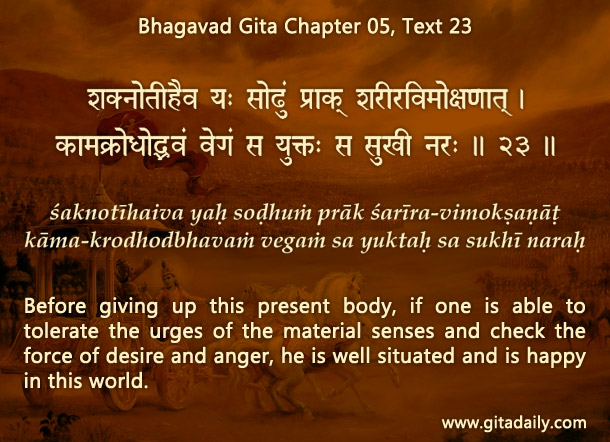“Get out” we may tell someone who has hurt us terribly. In the past, kings would exile offenders from their kingdom, with such banishment being an extremely severe punishment, just one level below execution. But suppose we were in no position to order someone to get out and yet we were also in no position to stay in that situation. Then we would ourselves get out. Or if a citizen had been insulted, exploited and abused by a king and if they had no power to dethrone the king, then they may well choose to leave the kingdom.
Similarly, we live in material existence, which is the kingdom of illusion. Being bewitched by the forces of illusion, we embrace selfish desires such as lust thinking that they will be sources of pleasure. But over time, we realize, as the Bhagavad-gita (05.22) cautions, they become the wombs of misery. At such times, feeling betrayed by those desires, we may order them to get out. And we may be dismayed, mortified and dejected to find that those desires still keep rearing their ugly heads and keep propositioning us towards the very indulgences that have caused us suffering.
Significantly, the next Gita verse (05.23) , as if anticipating our response, states that the way to deal with lust is not exile or execution, but tolerance. As long as live in a physical body and as long as our eyes contact sense objects, some desires will arise within us. If we can tolerate it lifelong, the Gita assures us that we will be well-situated and will be happy.
So, rather than expecting lust to get out of our body and our surroundings, we need to get our consciousness out of our body and invest in higher reality, ultimately Krishna. Of course, attaining Krishna’s abode is our ultimate aspiration, but intermediately too, we need to as a regular discipline get our consciousness out of the material level of reality and focused and purified and rejuvenated in spiritual reality. That will enable us to tolerate and transcend worldly desires with greater ease and effectiveness.


Leave A Comment